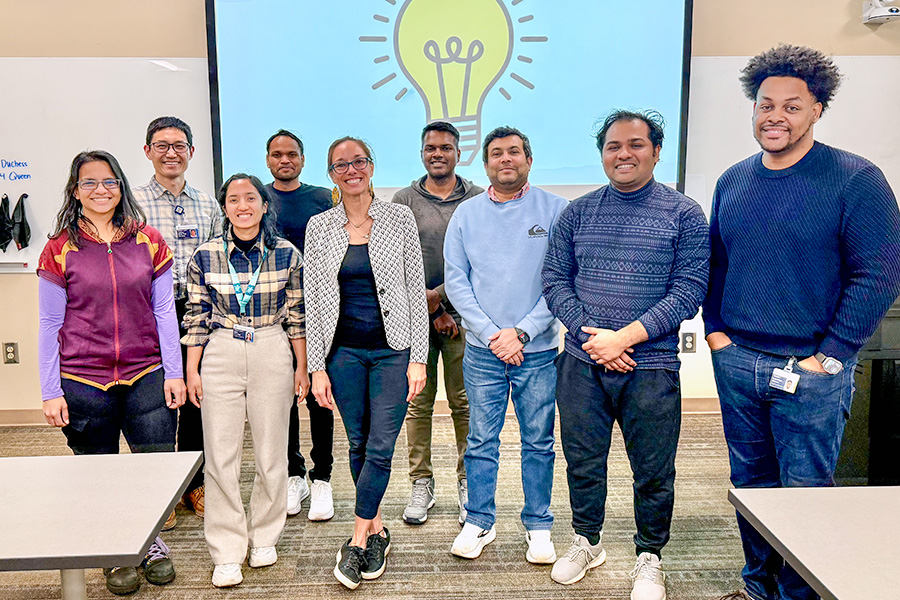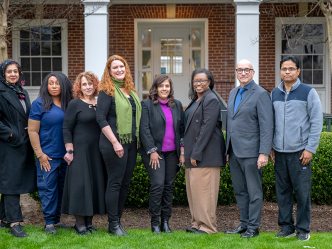For many graduate students and postdoctoral fellows, the transition from research to a faculty role can feel intimidating. It’s a shift that requires not only subject matter expertise, but also the confidence and ability to teach effectively.
Rhia Moreno, PhD, assistant professor at Augusta University’s College of Education and Human Development, recognized the need for additional support during her time as a Provost Learning Scholar.
“Stacy Kluge, director of Teaching and Learning at AU’s Center for Instructional Innovation, informed me that The Graduate School was looking for ways to support postdoctoral fellows and advanced graduate students preparing to apply for faculty positions,” Moreno said. “This immediately sparked the idea to expand on AU’s existing learning community model to create a more structured faculty preparation program.”
The Future Faculty Learning Community is an intensive, yearlong program that helps participants prepare for academic teaching roles. Participants meet monthly and engage in discussions on evidence-based teaching strategies, course and syllabus design, assessment innovation, active and inclusive learning, and the development of a teaching philosophy. Gaining these essential teaching skills while completing their studies can help foster a smooth and successful shift into academia.
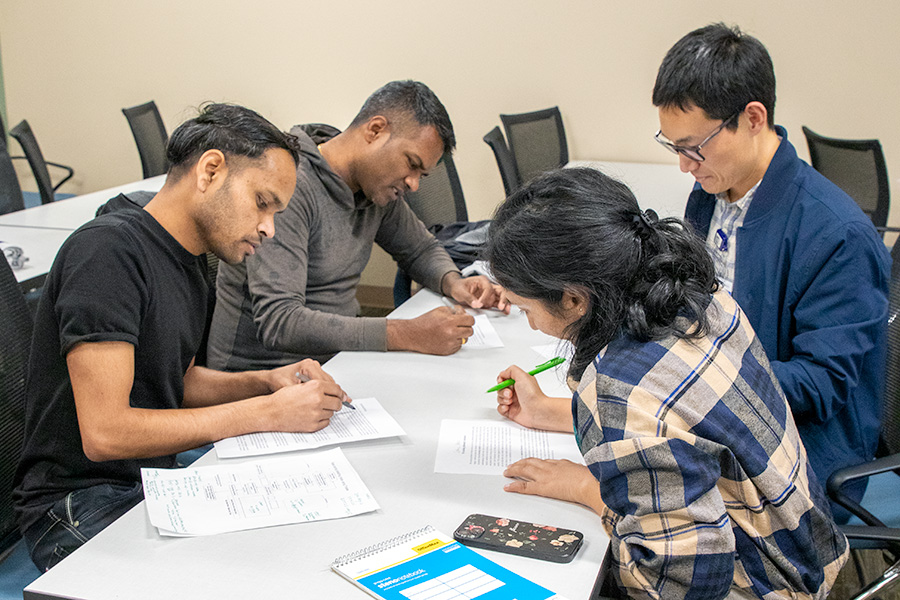
“One of the most valuable lessons I have gained from the program is the concept of building engagement through pedagogy,” said Shengshuai (Joshua) Shan, MD, PhD, a biological sciences postdoctoral fellow in the College of Science and Mathematics. “I recognize the importance of this teaching strategy in fostering strong relationships between students and instructors, leading to greater student engagement and optimal learning outcomes. I intend to apply this approach in my future teaching to create an interactive and supportive learning environment.”
Moreno creates community and facilitates interactive learning opportunities intentionally.
“We do a lot of community-building activities,” she said. “I start out each session with a short activity that may involve a game or them sharing something meaningful like a cultural object from their home or a favorite hobby.”
Because many participants are international students or fellows, Moreno stresses the importance of giving space to share cultures and languages in addition to their interests. While Moreno begins each year with a general structure in mind, she starts the first meeting with a collaborative brainstorming session to help guide and refine the content. This ensures the learning experience remains relevant across disciplines and tailored to participants’ unique needs and interests.
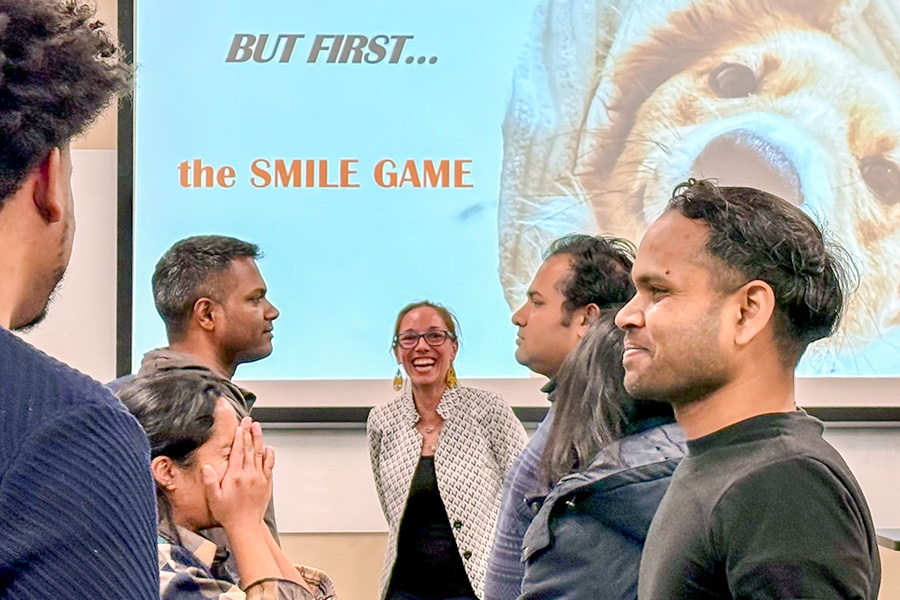
Another key session involves participants developing a teaching philosophy and engaging in dialogue with other community members. This process encourages thoughtful reflection on teaching and learning approaches, grounded in sound pedagogical principles.
“One of the most valuable lessons I’ve learned is about teaching philosophy and pedagogy — topics I had little exposure to before joining,” said Elina K C, DVM, PhD, a postdoctoral fellow in the Department of Neuroscience and Regenerative Medicine in AU’s Medical College of Georgia. “The program’s fun and interactive learning sessions have given me new perspectives on how to approach teaching, and I plan to incorporate these strategies into my future classroom to create an engaging, student-centered learning environment.”
The collaborative nature of the learning community is a unique opportunity for students and postdoctoral fellows from a variety of backgrounds to learn alongside one another. This exchange of diverse experiences not only fosters mutual growth but also deepens participants’ understanding of inclusive and effective teaching practices.
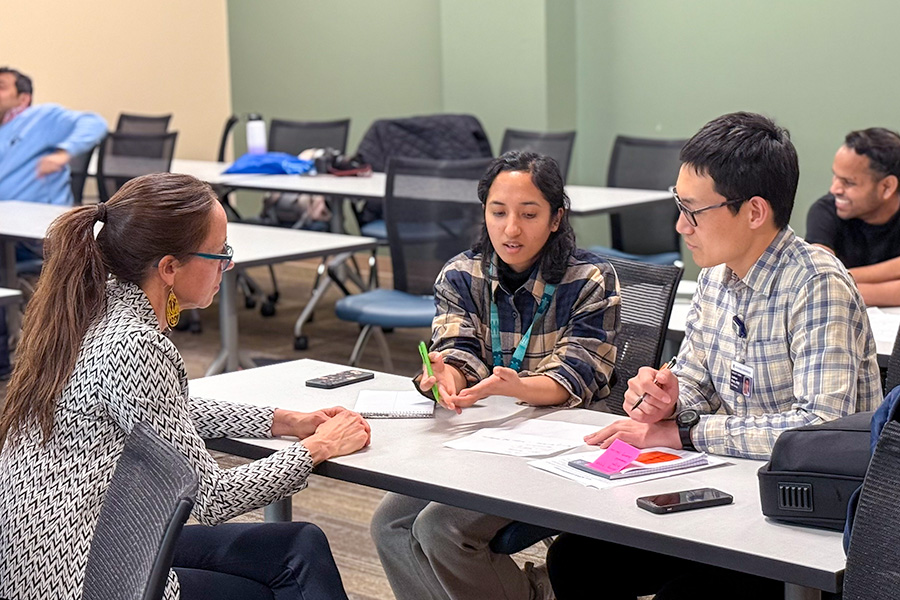
“Interacting with a diverse mix of PhD students and postdoctoral fellows in the program has been transformative,” said Dominique Monroe, a PhD candidate in the Biochemistry and Cancer Biology graduate program. “Hearing real-life scenarios and receiving tailored feedback has broadened my perspective, allowing me to adapt my teaching strategies to various settings — whether in a 300-seat lecture hall or a 12-bench laboratory room. Insights shared by my peers, coupled with guidance from Dr. Moreno, have been instrumental in shaping a teaching philosophy that is both adaptive and inclusive.”
As higher education evolves, the need for well-prepared educators has never been greater. The Future Faculty Learning Community not only equips participants with the skills to navigate academia confidently but also creates a supportive network of future educators committed to excellence in teaching. By fostering community, emphasizing exceptional pedagogy and centering student engagement, this learning community plays a vital role in shaping the next generation of faculty leaders at Augusta University and beyond.
 Augusta University
Augusta University
